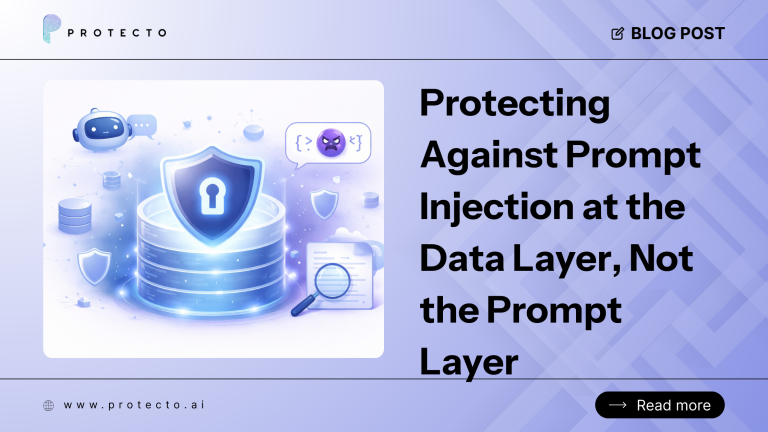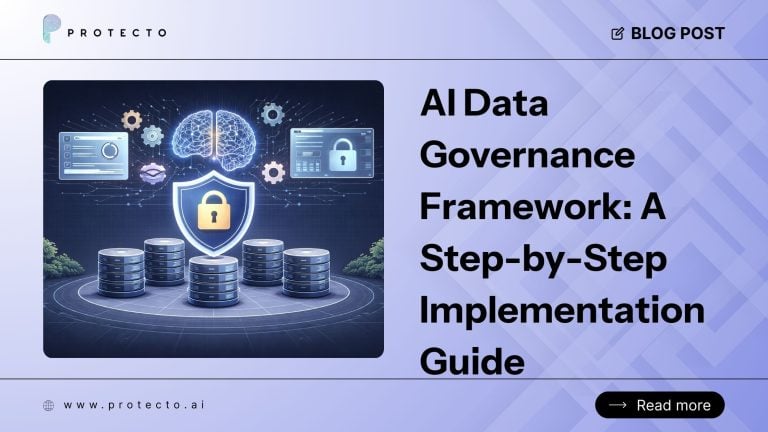The GDPR implements strict privacy and security standards for companies and imposes steep fines in case of violations. Its main goal is to allow individuals to control their data and simplify the regulatory environment for international companies. In this article, we will closely examine the impact of GDPR on data privacy and how it has changed how organizations handle personal data.
What is GDPR and why does it matter?
The General Data Protection Regulation or GDPR was approved by the European Union(EU) in 2016 to protect the personal data of its citizens and residents. It applies to any organization that targets or collects data from people in the EU, no matter where the organization is located. The regulation has strict privacy and security standards and imposes steep fines for violations. The main goal of GDPR is to allow individuals to control their data and simplify the regulatory environment for international companies. It came into effect in May2018.
GDPR matters because it ensures that all personal data is collected in a secure and legal process, with proper consent from the users. It places more power at the user’s end and extra responsibility at the business end. Against a background of global data transfers and more significant threats to privacy, a new law was needed to ensure that the personal data of EU citizens had robust protection. This protection needed to cover all EU citizens, regardless of where the data was being processed.
GDPR is a regulation that aims to protect the personal data of EU citizens and residents by imposing strict privacy and security standards on organizations that target or collect data from people in the EU. It matters because it gives individuals more control over their data and helps protect their personal information.
Interesting Read: How ROPA Can Help Address Data Privacy With GDPR
Importance of GDPR in the context of data privacy
The GDPR is necessary in data privacy because it gives individuals more control over how their data is used and processed. It also requires organizations to follow strict rules to ensure that personal data is used fairly, lawfully, transparently, and securely. These rules include encryption, pseudonymization, data minimization, accuracy, and retention limits.
In today’s world, personal data is used and transferred across the globe in ways lawmakers in the 1990s could not have imagined. The use of social media and multiple channels has irrevocably changed the way we communicate with each other and share information. As most of the data we use in these communications is personal, and much of it is tracked and recorded, the law to protect people’s privacy must be solid and current.
GDPR is vital in data privacy because it gives individuals more control over their data while ensuring that organizations follow strict rules to protect that data.
What are the main impacts of GDPR on data privacy?
The GDPR has significantly impacted data privacy since its implementation in May 2018. The regulation has three main goals: protecting users’ rights regarding their data, ensuring that data privacy laws keep up with the ever-changing landscape of technology, and creating unified and consistent legislation across the EU.
-> Strengthened Individual Rights
One of the major impacts of GDPR on data privacy is that it has strengthened individual rights. Under GDPR, individuals have the legal right to know what data companies are collecting about them and to delete that data and opt out of its collection altogether. This gives individuals more control over their data and helps ensure that their privacy rights are protected.
-> Expanded Territorial Scope
Another impact of GDPR on data privacy is its expanded territorial scope. The regulation applies to any company that processes the personal data of EU citizens, no matter whether those companies are based within or outside of the EU. Companies worldwide must comply with GDPR’s strict privacy and security standards to do business with EU citizens.
-> International Data Transfers
GDPR has also had an impact on international data transfers. The regulation requires that personal data transferred outside the EU be subject to the same level of protection as it would be within the EU. Companies must ensure that any third-party processors they use to handle personal data comply with GDPR’s standards.
-> Increased Transparency & Accountability
GDPR has also increased transparency and accountability in how organizations handle personal data. Companies must obtain explicit user consent before collecting, storing, or distributing their data. They must also keep detailed documentation about what data is being held, where it came from, how it was accessed, how it’s being processed, and the purpose of having the data. This helps to ensure that organizations are transparent about their data processing activities and are held accountable for complying with GDPR standards.
-> Hefty Fines for Non-compliance
Another impact of GDPR on data privacy is its provision for hefty fines for non-compliance. Companies that violate GDPR provisions are open to fines of up to 4% of their global revenue or $23 million, whichever is greater. This strongly incentivizes companies to comply with GDPR’s strict privacy and security standards.
-> Obligation to Conduct Privacy Impact Assessments
Finally, GDPR has also obliged organizations to conduct privacy impact assessments. These assessments help organizations identify and mitigate risks associated with their data processing activities. This helps to ensure that organizations take a proactive approach to protecting personal data and complying with GDPR’s standards.
What is considered as ‘personal data’ under the GDPR?
Personal data is any data that can relate to an identified or potentially identifiable natural person or subject, directly or indirectly. This can include direct identifiers like names and email addresses and indirect identifiers like location, online, biological, or cookie data. Even de-identified or encrypted data that can be re-identified is considered personal data.
The GDPR states that data is only classified as “personal data” if an individual can be identified directly or indirectly using online identifiers like their name, identification number, IP address, or location data. This also applies if these identifiers give information specific to a person’s physical, physiological, genetic, mental, social, cultural, or economic identity.
This can include a wide range of information, such as names and email addresses, and indirect identifiers like location and online data.
Penalties for GDPR non-compliance
The GDPR imposes strict penalties for non-compliance.
- Violators may be fined up to €20 million or up to 4% of the annual worldwide turnover of the last financial year, whichever is greater.
- The fines can be up to €20 million or up to 4% of the total global turnover of the preceding fiscal year for severe violations.
Supervisory authorities can also take other actions, such as issuing warnings and reprimands, ordering data rectification, restriction, or erasure, imposing a temporary or permanent ban on data processing, and suspending data transfers to other countries.
Trends in extents of fines:
- GDPR penalties for non-compliance have increased over time, and big tech companies have seen significant fines imposed.
- No fines have reached the maximum penalty of 4% of global revenue.
- Demand for accountability and calls for a U.S. version of GDPR have increased, keeping data privacy and protection at the forefront of security discussions.
Number of fines levied globally over the past years
The number of fines issued globally for GDPR non-compliance has increased over the past years. Since its implementation in May 2018, European supervisory authorities have issued a total of €2.34 bn in GDPR fines.
This trend is expected to go on as more companies become subject to GDPR’s strict privacy and security standards. Penalties for GDPR non-compliance can be severe, including hefty fines and other actions such as warnings and reprimands. The number and extent of penalties issued globally for GDPR non-compliance have increased over time.
Suggested Read: What You Should Know About DPA vs. GDPR
5 benefits of GDPR compliance
While complying with GDPR may seem daunting for many organizations, there are several benefits to being GDPR compliant. These benefits include improved consumer confidence, better data security, reduced maintenance costs, better alignment with evolving technology, and excellent decision-making.
1. Increased Trust & Reputation
GDPR compliance will help customers realize that your organization is a good data custodian. This new legislation mandates that each organization have a data protection officer (DPO) and regular audits of data processing activities. Furthermore, your organization must comply with data protection principles under the GDPR, ensuring that the necessary framework is in place to secure data subjects’ personally identifiable information. The GDPR’s proposed security practices will bolster your brand’s reputation, showing customers you have a robust data governance system.
2. Reduced Chance of Fines
By complying with GDPR’s strict privacy and security standards, organizations can reduce their chance of being fined for non-compliance. Violators can face fines of up to 4% of their global revenue or $23 million. This provides a strong incentive for companies to comply with GDPR standards.
3. Improved Data Security
GDPR compliance can also help improve an organization’s data security. The regulation requires organizations to implement appropriate technical and organizational measures to ensure the safety of personal data. This includes measures such as encryption, pseudonymization, and regular testing of security systems. Organizations can reduce their risk of data breaches and other security incidents by implementing these measures.
4. Better Alignment with Evolving Technology
GDPR compliance can also help organizations stay aligned with evolving technology. The regulation requires organizations to regularly assess data processing activities to ensure compliance with GDPR standards. This can help organizations remain up-to-date with technological changes and ensure that their data processing activities align with best practices.
5. Reduced Maintenance Costs
Finally, GDPR compliance can help reduce an organization’s maintenance costs. By implementing GDPR-compliant processes and systems, organizations can streamline their data processing activities and reduce the time and resources required to manage personal data. This can help organizations save money on maintenance costs and improve efficiency.
GDPR FAQs
Who needs to comply with GDPR?
The GDPR applies to any organization that processes the personal data of EU citizens, regardless of whether those companies are based within or outside the EU. Companies worldwide must comply with GDPR’s strict privacy and security standards to do business with EU citizens.
Does GDPR apply to all businesses, even those outside the EU?
Yes, GDPR applies to all businesses that process the personal data of EU citizens, even if those businesses are located outside of the EU. Companies worldwide must comply with GDPR’s strict privacy and security standards to do business with EU citizens.
What are the standard GDPR fines?
GDPR violators face fines up to 4% of global revenue or $23 million (whichever is greater). Fines can go up to €20 million or up to 4% of the total global turnover of the preceding fiscal year for especially severe violations.
How do I comply with the GDPR?
To comply with GDPR, organizations must implement appropriate technical and organizational measures to ensure personal data security. This includes measures such as encryption, pseudonymization, and regular testing of security systems. Organizations must also obtain clear consent from users before collecting, storing, or distributing their data.
What is a Data Protection Officer?
A Data Protection Officer (DPO) is appointed by an organization to ensure that it complies with GDPR’s strict privacy and security standards. The DPO oversees data protection strategy and implementation within an organization.
How Protecto helps from a GDPR compliance standpoint
With Protecto, you can access a complete, fully-featured data privacy and security framework that can provide end-to-end help from a GDPR compliance standpoint. Whether it is protecting user data in a specialized privacy vault or generating comprehensive compliance reports and analytics, Protecto can do it all. Get in touch with us today for a consultation.



